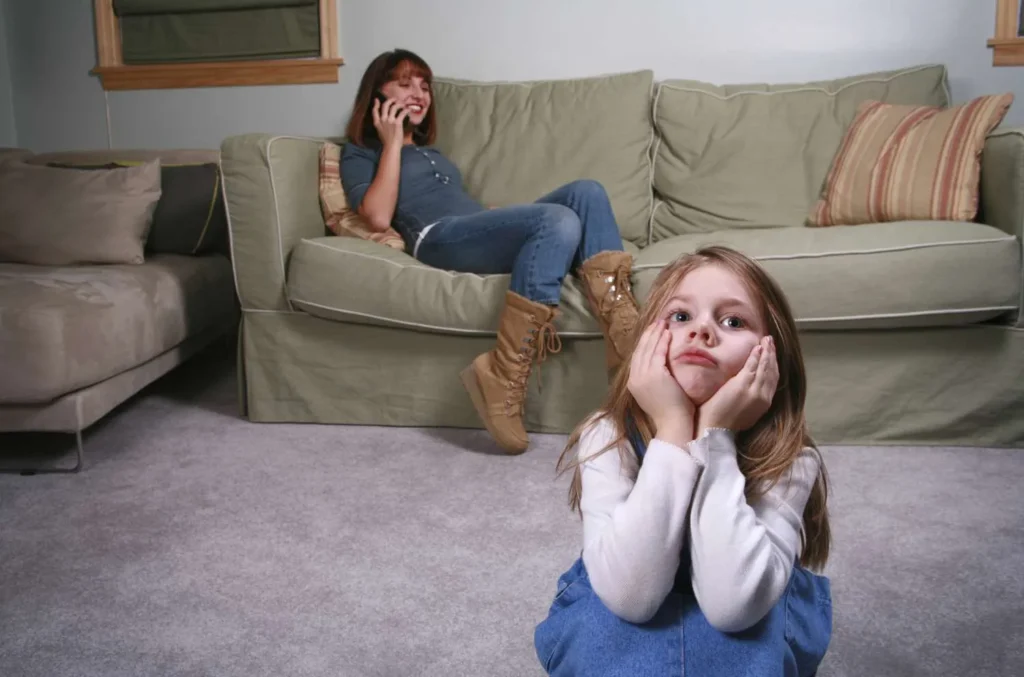Do you want to know the potential signs of a bad nanny? Keep reading to know the potential signs of a bad nanny and the steps to take.

Selecting a trustworthy and responsible nanny is a crucial decision for parents entrusting the care of their children to someone else.
Unfortunately, there are instances where a nanny may display concerning behavior that puts a child’s well-being at risk.
Here, you will get to know the signs of a bad nanny and the necessary steps to ensure your child’s safety.
Signs of a Bad Nanny

Here are potential signs of a bad nanny:
1. Lack of Genuine Interest in Your Child’s Well-being
A good nanny should show genuine interest in your child’s well-being, development, and happiness. If you notice a lack of enthusiasm or concern for your child’s welfare, it may be a sign of a bad nanny.
A caregiver’s genuine interest contributes to a positive and nurturing environment, fostering the child’s overall growth.
2. You Notice Constant Absenteeism or Tardiness Without Valid Reasons
Consistent absenteeism or tardiness without valid reasons can disrupt your child’s routine and suggest a lack of commitment and reliability on the part of the nanny.
Punctuality and regular attendance are essential traits for a caregiver, ensuring stability and dependability in the child’s daily schedule.
3. You Notice Negligence of Basic Care Responsibilities
A bad nanny may neglect basic care responsibilities, such as ensuring your child is fed, changed, and provided with a safe environment.
Persistent signs of neglect should not be ignored, as they can jeopardize the child’s well-being and development.
4. Inability to Provide Clear and Consistent Information
A trustworthy nanny should be able to communicate effectively and provide clear and consistent information about your child’s activities, meals, and any incidents that occurred during their care.
Open and transparent communication builds trust between parents and the nanny, ensuring the child’s safety.
5. You Notice Unexplained Injuries on Your Child
If your child consistently returns with unexplained injuries or bruises, it raises significant concerns about the nanny’s ability to ensure a safe and secure environment.
Vigilance in observing any physical harm and addressing it promptly is crucial to the child’s safety.
6. Ignoring Safety Guidelines and Instructions
A bad nanny may disregard safety guidelines and specific instructions you’ve provided.
This includes not following dietary restrictions, allowing access to unsafe areas, or neglecting other crucial safety measures.
Nannies should prioritize the child’s safety and adhere to established guidelines.
7. Sudden and Negative Changes in Your Child’s Behavior
Notice any sudden changes in your child’s behavior, such as increased anxiety, withdrawal, or signs of distress.
Also, these changes may indicate negative experiences during the nanny’s care, and addressing them promptly is essential for the child’s emotional well-being.
8. Reluctance or Fear in Your Child’s Interaction with the Nanny
If your child expresses reluctance or fear about being left alone with the nanny, it’s essential to investigate the reasons behind these feelings and take them seriously.
A positive and trusting relationship between the child and the caregiver is fundamental for their well-being.
9. Discovering Inappropriate Discipline Tactics
Be vigilant for signs of inappropriate discipline tactics, such as yelling, harsh punishment, or any form of emotional or physical abuse.
A good nanny should prioritize positive reinforcement and age-appropriate disciplinary measures, promoting a healthy and respectful environment.
10. Unwillingness to Engage in Open Communication
An unwillingness to engage in open communication or provide updates on your child’s well-being may indicate a lack of transparency and raise questions about the nanny’s professionalism.
Effective communication is vital for parents to stay informed and ensure the child’s needs are met.
In conclusion, being attentive to signs of a bad nanny is crucial for safeguarding your child’s well-being.
By staying vigilant, communicating openly, and taking swift action when needed, parents can ensure a safe and nurturing environment for their children.
Prioritizing the child’s safety, development, and happiness is paramount in selecting and monitoring a caregiver.
Related Searches:
